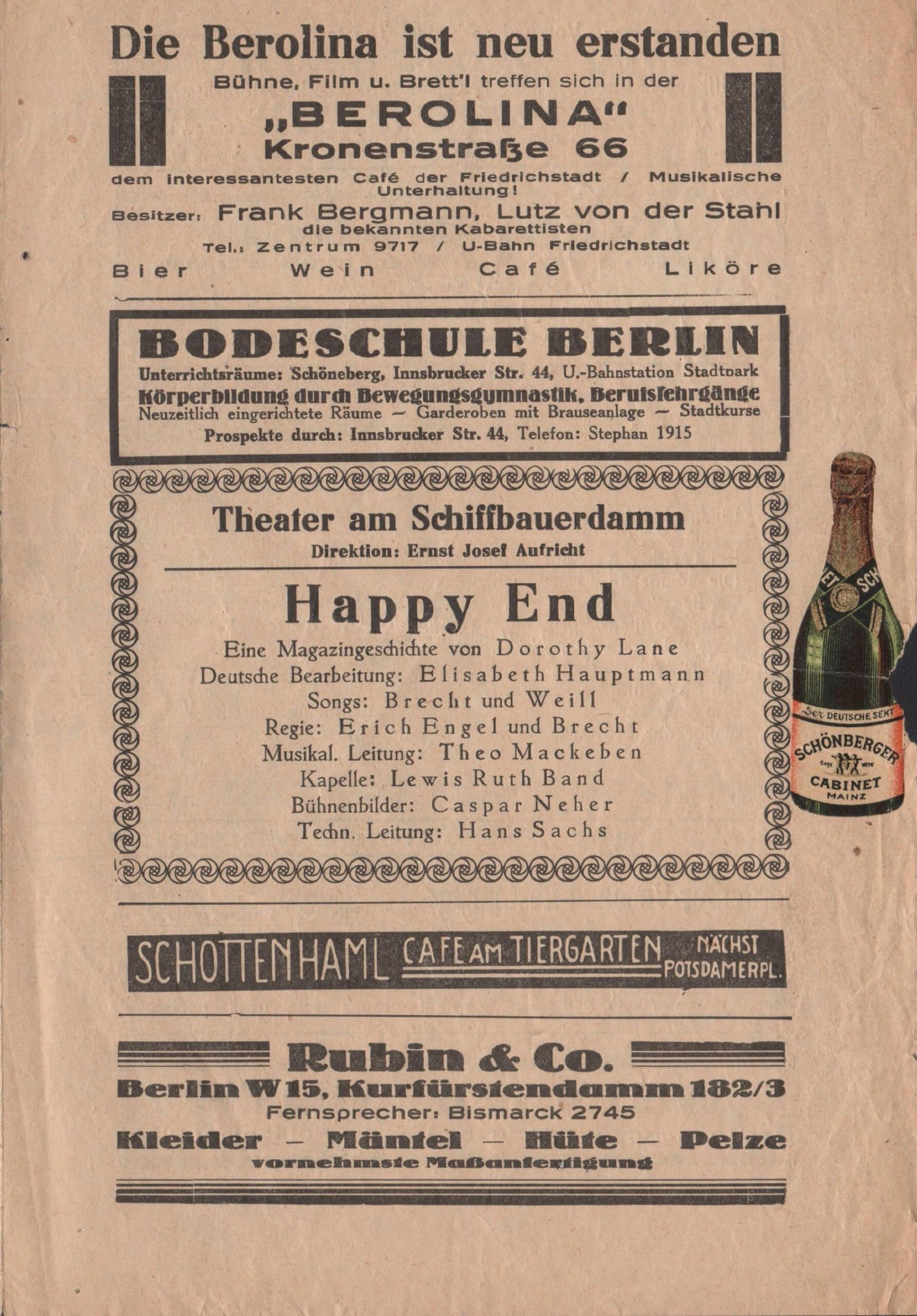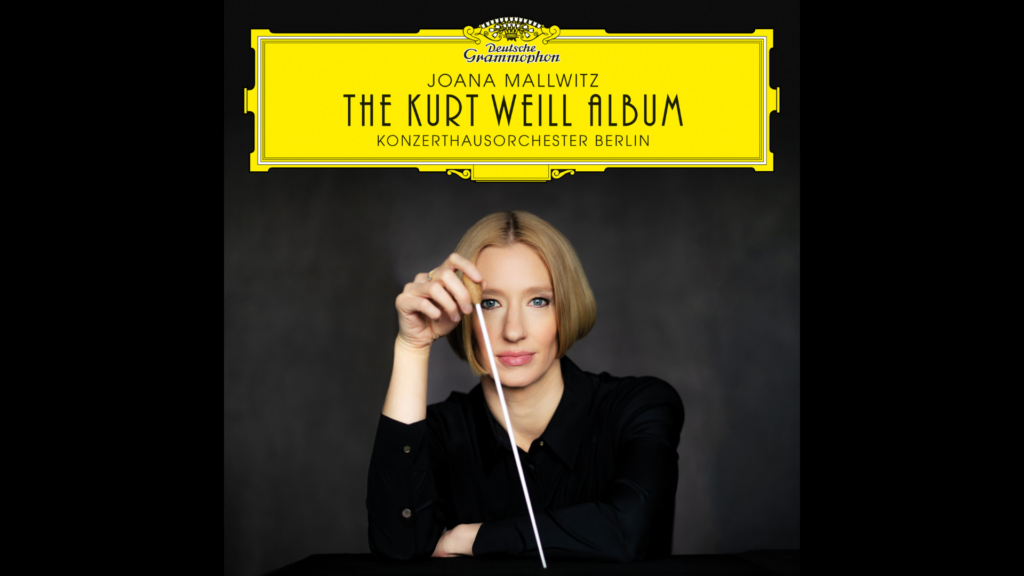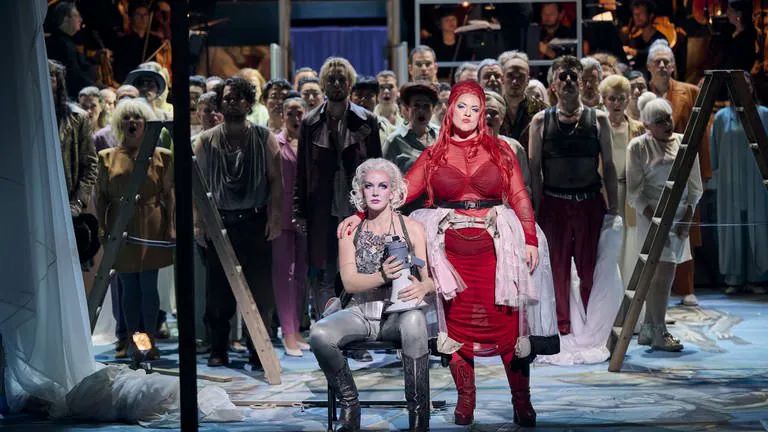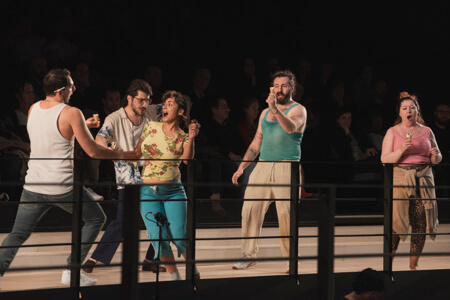
Few 20th-century musical theater works are as shrouded in myth and legend as Happy End, and few have given us so many enduring hit songs. The latest volume of the Kurt Weill Edition dispels the myths and presents the songs in authoritative form, affording a fresh understanding of the score and script along with the show’s genesis and history.
The demystifying begins on the title page, where Elisabeth Hauptmann is given full credit for writing the book for the first time (in earlier publications, she was credited under a pseudonym, Dorothy Lane). The introductory essay, comprehensively researched as usual, presents a detailed account of the difficult rehearsal process and explains what really happened on opening night, correcting the story fixed in popular lore of Helene Weigel insulting the audience without warning by declaiming from a Communist pamphlet, causing the premiere to end in chaos. (It turns out that the elements of her speech and the idea of portraying famous American industrialists as “saints” were part of the plot even before rehearsals began.) One of the most persistent myths of all has the show closing after only two or three performances. In fact, it ran a full month in Berlin. One common notion about Happy End proves true: the rehearsal period saw endless rewrites of the script and conflict between Brecht and director Erich Engel, who quit the production before opening night; the essay confirms the rumors and spells out the tangled narrative in detail, as well as providing a richly documented reception history of the work through the present.
The text of the work–book, music, and lyrics–is given in full (including some alternative versions of songs in the appendix), with the usual apparatus offered by the Kurt Weill Edition: facsimiles of important manuscripts and documents, painstaking description of sources, and a critical report with detailed explanations of decisions made by the editors. The orchestral scores of Weill-Brecht classics such as “Surabaya-Johnny,” “Bilbao-Song,” “Sailors’ Tango,” and a clutch of Salvation Army songs created for the occasion are all fully notated and laid out in context, with dialogue presented around (and, where prescribed, within) them.
It would be hard to find two scholars better equipped for the task of preparing this critical edition of Happy End. Professor Stephen Hinton of Stanford has years of Weill scholarship under his belt, including the critical edition of Die Dreigroschenoper (The Threepenny Opera)—Series I, Volume 5 of the Kurt Weill Edition—and a book-length analysis of Weill’s stage works that became standard the moment it rolled off the press. Elmar Juchem, Managing Editor of the Edition project, has spent much of his life working with Weill manuscripts and has accumulated unmatched expertise in editing his music.
Kurt Weill Edition (Series I, Volume 6): Happy End, ed. Stephen Hinton and Elmar Juchem (New York: Kurt Weill Foundation for Music / European American Music Corporation, 2020). Complete Score and Script: 240 pp.; Critical Report: 61 pp. ISBN: 978-1-62721-904-4. Sales Price: $450 ($300 for subscribers). Order no. KWE 1006.


